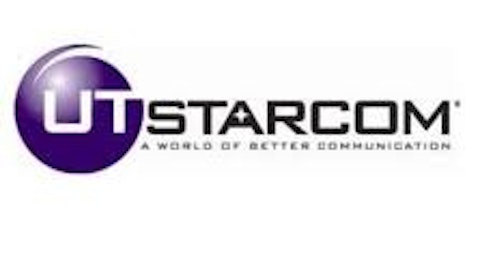Following activist funds is important because it is a very specific and focused strategy in which the investor doesn’t have to wait for catalysts to realize gains in the holding. An activist fund can simply create its own catalysts by pushing for them through negotiations with the company’s management and directors. In recent years, the average returns of activists’ hedge funds have been much higher than the returns of an average hedge fund. With that in mind, this article will investigate two 13D (activist) filings submitted with the SEC by two hedge funds monitored by Insider Monkey.
However, we believe do-it-yourself investors have an advantage over activist hedge fund investors because they don’t have to pay 2% of their assets and 20% of their gains every year to compensate hedge fund managers. We have found through extensive research that the top small-cap picks of hedge funds are also capable of generating high returns and built a system around this premise. In the 38 months since our small-cap strategy was launched it has returned over 102% and beaten the S&P 500 ETF (SPY) by more than 53 percentage points (read more details).
According to a 13D filing, Shah Capital Management, overseen by Himanshu H. Shah, owns 3.24 million shares of China Yuchai International Limited (NYSE:CYD), including stock options to buy 200,000 shares. This compares with the 2.85 million-share position revealed by Shah Capital through its latest 13F filing. The freshly-upped stake accounts for 8.31% of the company’s outstanding common stock. The public filing also states that the stock was undervalued and represented an attractive investment opportunity at the time of purchase. The shares of the manufacturer of engines for on-road and off-road applications in China are 41% in the red year-to-date, mainly due to softening demand in the commercial vehicle market. The slowdown of China’s economy has been hindering growth in this market, so Himanshu H. Shah and his team might be betting on a revitalizing Chinese economy in the forthcoming future. China Yuchai International Limited (NYSE:CYD) reported net revenue of RMB 10.8 billion (~$1.7 billion) for the nine months that ended September 30, which compares with RMB 12.5 billion reported in 2014. This decline was mainly attributable to the decrease in the total number of engines sold; the company sold 304,424 units for the first nine months of 2015, down from 390,731 units sold last year. At the same time, its earnings per share for the nine months of 2015 totaled RMB 7.32 (~$1.15), down from RMB 13.02 delivered a year ago. It should be mentioned that the stock trades at a very cheap trailing price-to-earnings ratio of 5.10, which is substantially below the average of 22.73 for the S&P 500 companies.
Although the number of hedge funds with positions in the engine manufacturer climbed to nine from eight during the third quarter, the value of their positions shrank to $46.66 million from $56.78 million quarter-on-quarter. These hedge funds stockpiled nearly 10% of the company’s outstanding common stock at the end of September. Alan Reid’s Forward Management owns approximately 492,000 shares in China Yuchai International Limited (NYSE:CYD) as of the end of the third quarter.
Follow Himanshu H. Shah's Shah Capital Management
Let’s move on to the second page of this article, where we discuss the 13D filing submitted by Clinton Group.
As stated by a freshly-amended 13D filing, George Hall’s Clinton Group ceased to the beneficial owner of more than 5% of common stock in Pacific Mercantile Bancorp (NASDAQ:PMBC). Clinton Group has been gradually cutting its stake in the bank holding company, as revealed by several public filings submitted with the SEC. George Hall’s fund holds a stake of 1.10 million shares of the company, which represents 4.8% of its outstanding common stock. This denotes a decrease of 978,657 shares from the position disclosed in the latest round of 13Fs. According to the same 13D filing, Daniel A. Strauss, an employee of Clinton, resigned from Pacific Mercantile Bancorp (NASDAQ:PMBC)’s Board of Directors on December 14. The company generated total interest income of $28.9 million for the nine months that ended September 30, increasing by 3.0% year-on-year. This increase was mainly achieved due to higher average loan balances, as the average yield on interest-earning assets decreased to 3.77% from 3.79% year-on-year. The bank’s source of revenue relies on its net interest income, which represents the differential between the interest earned on loans (including other interest-earning assets) and interest expenses (paid on customers’ deposits, borrowings, and other interest-bearing liabilities). Hence, the rising interest rate environment pursued by the Federal Reserve will most likely drive up Pacific Mercantile Bank’s interest income in the medium- and long-term. Meanwhile, the shares of the bank are trading in negative territory for the year (less than 1%).
The hedge fund sentiment towards the stock did not change during the third quarter, as the number of smart money investors with positions in the bank remained flat during the three-month period at three. These top money managers accumulated 11.80% of the company’s outstanding common stock, while the value of their investments in the company grew to $15.67 million from $10.60 million quarter-on-quarter. Jim Simons’ Renaissance Technologies holds 235,000 shares in Pacific Mercantile Bancorp (NASDAQ:PMBC) as of September 30.
Follow George Hall's Clinton Group
Disclosure: None




